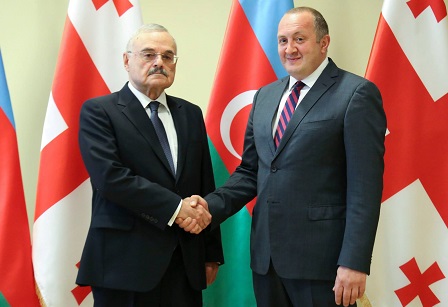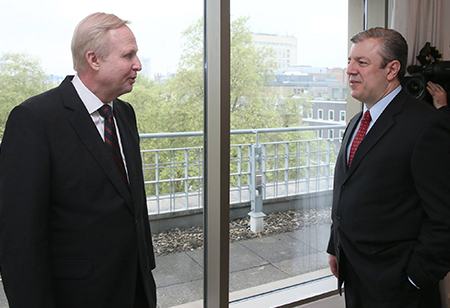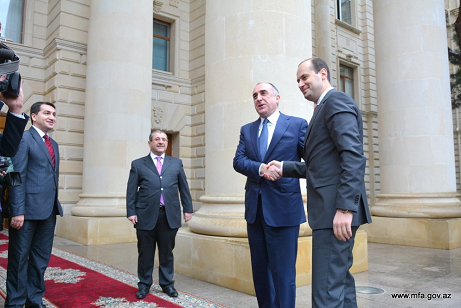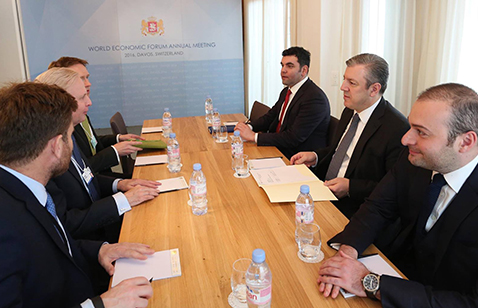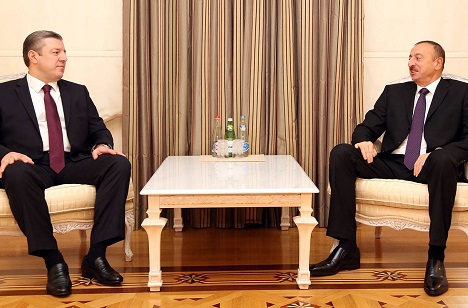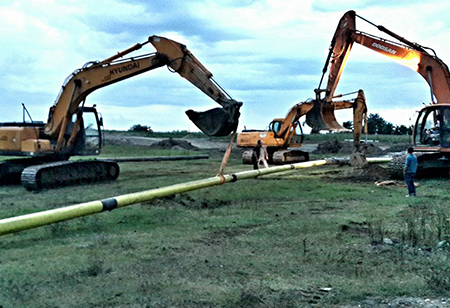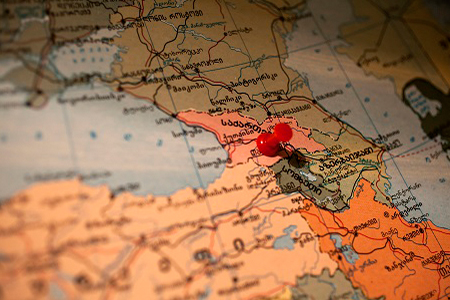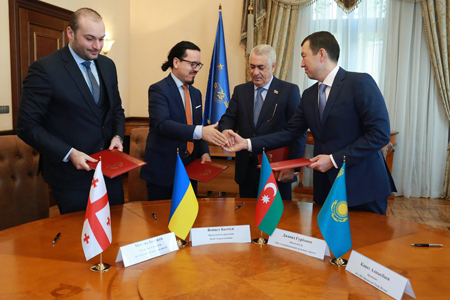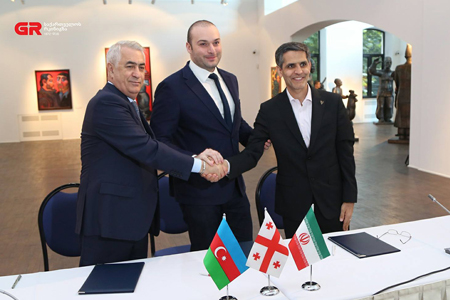“Project of the century”
Georgia marks 20th anniversary of Baku-Tbilisi-Supsa project
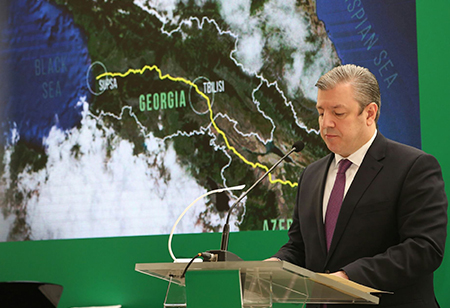
Georgia is celebrating the 20th anniversary of the Baku-Supsa project with Azerbaijan – the "project of the century” that transfers oil from Azerbaijan through Georgia to Turkey and on to Europe.
Today as Georgia and Azerbaijan marks 20 years since both countries penned a deal to launch the project, high officials from both sides said the Baku-Supsa pipeline solidified the countries’ close cooperation in the energy sector.
Today at a special event Georgia’s Prime Minister Giorgi Kvirikashvili called the Baku-Tbilisi-Supsa pipeline the "project of the century” as it created "stability” and was a "guarantee of piece” in the South Caucasus. The project also cemented the image of Georgia as a transit country for oil and gas (by pipeline) and goods (by land).
20th anniversary of the East-West #EnergyCorridor. #BakuSupsa Pipeline is guarantee of stability&peace across South #Caucasus
— Giorgi Kvirikashvili (@KvirikashviliGi) May 16, 2016
The Western Route Export Pipeline (WREP) commonly known as the Baku-Tbilisi-Supsa pipeline or Baku-Supsa pipeline, is 830km long that transports oil from the Chirag field in the Caspian Sea via the Sangachal terminal in Azerbaijan to the Supsa terminal in western Georgia. Just under half of the pipeline is located on Georgian territory.
WREP, which became fully operational in 1999, is capable of transporting up to 100,000 barrels of oil a day and ensures transporting oil through Georgia and on to world markets, said British Petroleum (BP).
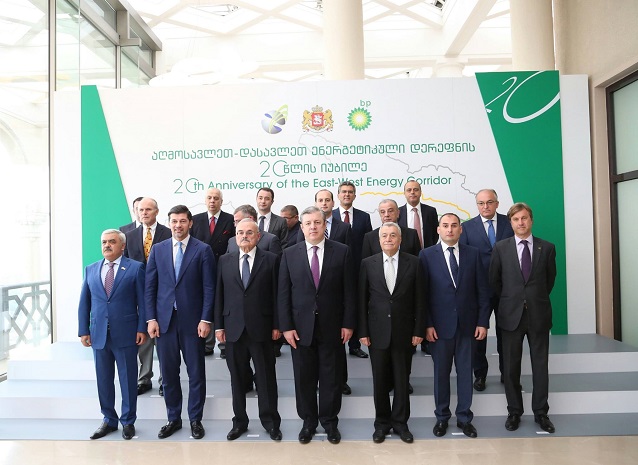
Today Georgia and Azerbaijan celebrated 20th Anniversary of the East-West Energy Corridor. Photo by the PM's press office.
Twenty years ago, on March 8, 1996 Azerbaijan’s former president Heydar Aliyev and Georgia’s former president Eduard Shevardnadze signed an agreement to construct the Baku-Tbilisi-Supsa pipeline, which laid the foundation for the East-West Energy Corridor.
Once the deal was signed a project was launched with the involvement of BP and international partners.
Thanks to this project Georgia finally established itself on the world map as a historically transit country that offers the best transit route from East to West and vice-versa,” Kvirikashvili said.
Twenty years ago the first tanker was filled with Azerbaijani oil and it headed West to Europe and today we can say this project has resulted in a number of interesting initiatives [for Georgia],” he added.
Georgia’s PM stressed the country’s "important” transit role in providing oil and gas to the European Union (EU). He said Georgia understook its role and responsibility as a transit country and fully supported the current and future energy projects that would ensure the diversification of routes for transporting the world’s energy resources.

Azerbaijan’s PM Artur Rasizade and Georgia's PM Giorgi Kvirikashvili during the celebratory lunch. Photo by the PM's press office.
In recent years Georgia and Azerbaijan, together with Turkey, established a strategic partnership and developed a mutually beneficial cooperation in the energy sector,” Kvirikashvili said.
As an example of successful cooperation between the three countries Kvirikashvili named the South Caucasus Pipeline as well as the Baku-Tbilisi-Ceyhan and Baku-Tbilisi-Supsa projects.
Meanwhile Georgia’s Energy Minister Kakha Kaladze praised the Baku-Tbilisi-Supsa project as the beginning of strategic and distinguished relations between Georgia and Azerbaijan.
The [Baku-Tbilisi-Supsa] project was not just a $550 million USD investment in our country. It was not just the first pipeline since the independence of Georgia but it was the beginning of a strategic, distinguished relationship with Azerbaijan; the beginning of a successful relationship that has been strengthening year after year,” Kaladze said.
Azerbaijan’s Prime Minister Artur Rasizade, representatives from the BP and several ambassadors also attended today’s celebration in Tbilisi marking the 20th anniversary of the project.
 Tweet
Tweet  Share
Share
